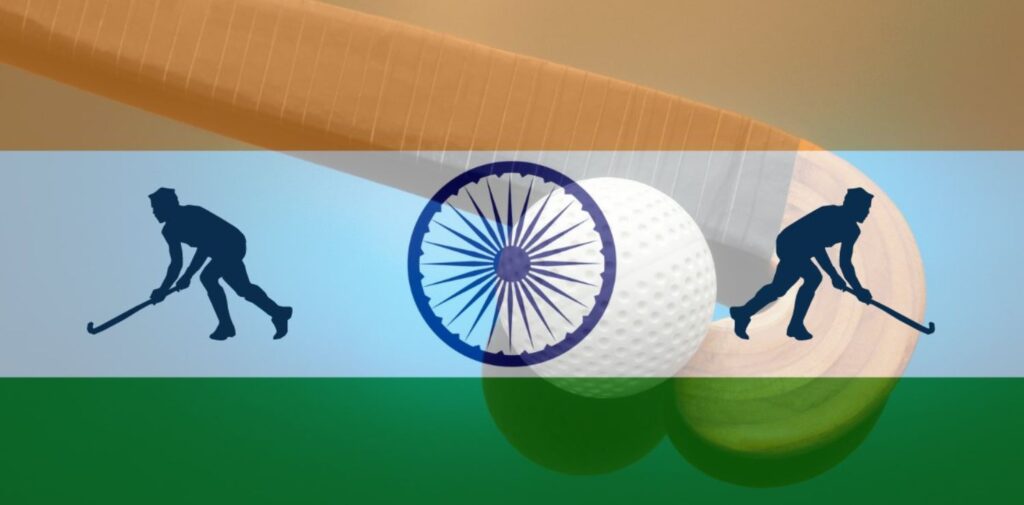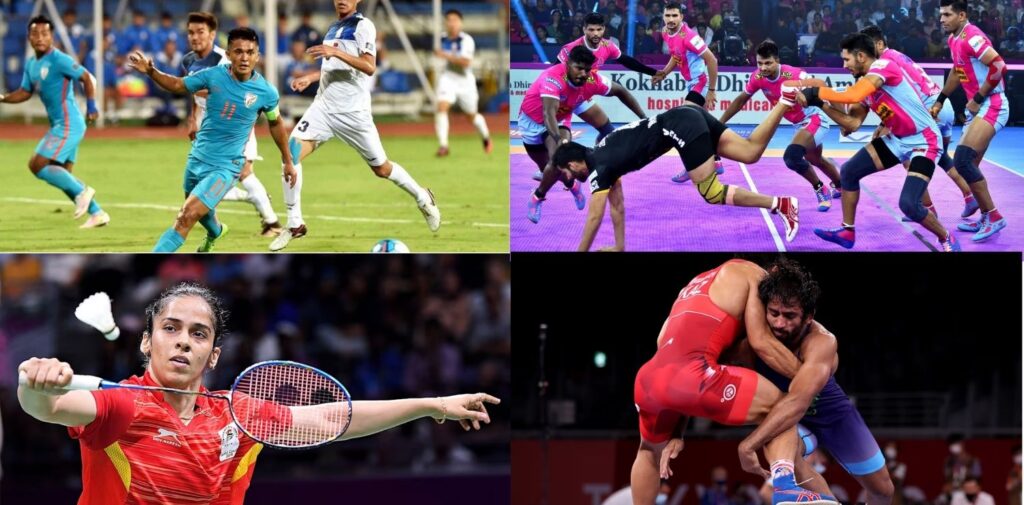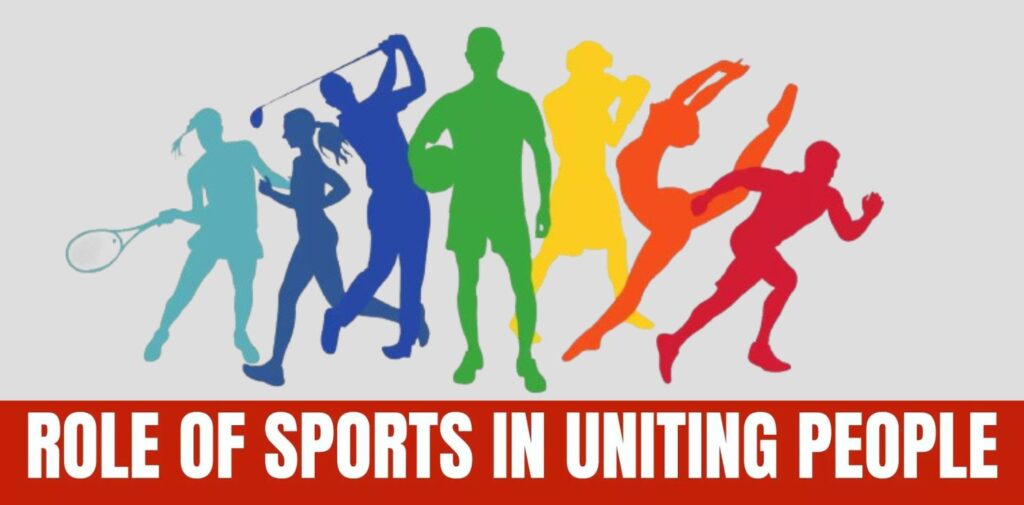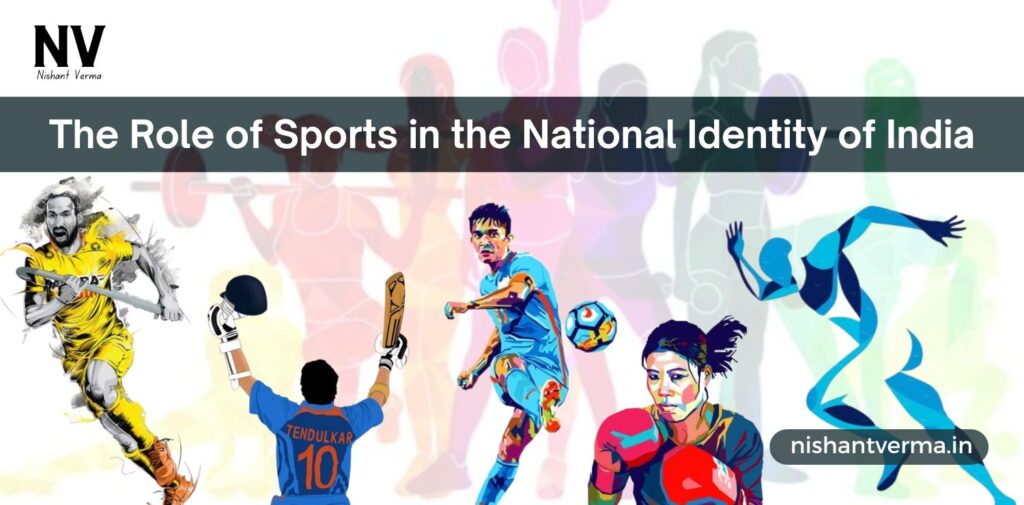Sports are a vital part of life in India, shaping the nation’s identity and bringing people together. With a rich history of sports, India has seen how games like cricket and hockey unite its diverse population. This article explores the Role of sports in India’s national identity, focusing on cricket, hockey, and other sports that foster a sense of unity and pride.

The Heartbeat of India: Cricket
- Cricket as a Cultural Phenomenon: Cricket is often described as a religion in India. It is not just a game; it is an emotion that connects millions of fans across the country. From the streets of Mumbai to the villages of Rajasthan, cricket is played passionately. The game has the power to bring together people from various backgrounds, cultures, and religions.
- Major Tournaments and Their Impact: Events like the ICC Cricket World Cup and the Indian Premier League (IPL) create excitement that can be felt nationwide. When India plays, people gather in homes, cafés, and public spaces, cheering for their team. These moments foster a sense of togetherness. The 1983 World Cup victory, for instance, is still celebrated as a turning point in Indian cricket history. It not only boosted the sport’s popularity but also instilled a sense of national pride.
- Role Models and Inspiration: Cricketers like Sachin Tendulkar, MS Dhoni, and Virat Kohli have become national icons. Their achievements inspire millions of young athletes, encouraging them to pursue their dreams. The success of these players has made cricket a symbol of hope and perseverance, showing that dedication can lead to greatness.

Hockey: The Forgotten Glory
- Historical Significance: Hockey has a rich history in India, once celebrated as the national sport. The Indian hockey team dominated international competitions in the mid-20th century, winning several Olympic gold medals. These victories created a legacy of excellence and pride, particularly during the period of independence.
- A Symbol of Unity: Hockey has the power to unite people, just like cricket. The Indian team’s achievements, particularly under legendary players like Dhyan Chand, evoke a sense of nostalgia. The sport fosters a spirit of teamwork and collaboration, reflecting the essence of Indian culture. Even though hockey has seen a decline in popularity compared to cricket, its historical significance remains a source of pride.
- Recent Resurgence: In recent years, Indian hockey has made a comeback. The national team’s strong performances in international tournaments have rekindled interest in the sport. The success of the women’s team in the Tokyo Olympics further highlighted the importance of hockey in India’s sporting landscape. Such achievements contribute to the narrative of national pride and identity.

Beyond Cricket and Hockey: The Growing Influence of Other Sports
While cricket and hockey dominate discussions about sports in India, many other sports also play crucial roles in shaping national identity.
- Football: A Rising Passion: Football has gained tremendous popularity, especially in states like West Bengal, Goa, and Kerala. The Indian Super League (ISL) has helped increase interest in the sport, attracting fans and players alike. Events like the FIFA World Cup also draw significant attention, uniting football fans across the nation. The enthusiasm for football showcases India’s diversity, as different regions have their own unique football cultures.
- Kabaddi: A Traditional Game: Kabaddi, a traditional Indian sport, has also found its place in the national consciousness. The Pro Kabaddi League has revived interest in this ancient game, showcasing its cultural significance. Kabaddi reflects the rural roots of India and emphasizes strength, strategy, and teamwork. The growing popularity of kabaddi promotes regional pride and reinforces a sense of identity among fans.
- Badminton and Wrestling: Emerging Icons: Badminton and wrestling have also emerged as significant sports in India. Athletes like P.V. Sindhu and Sushil Kumar have made headlines on international platforms, bringing recognition to these sports. Their success stories resonate with young athletes, inspiring them to take up sports that may not have been traditionally popular. This diversification in sports participation enriches India’s sporting identity.

Role of Sports and Social Change
- A Platform for Unity: Sports serve as a powerful platform for promoting unity and social change. They transcend barriers of class, caste, and religion, allowing people to come together for a common cause. Events like the Olympics or the Commonwealth Games see athletes from diverse backgrounds representing India, showcasing the country’s multicultural identity.
- Empowering Youth: Sports also empower youth, providing opportunities for skill development and personal growth. Initiatives aimed at promoting sports in schools and communities encourage children to participate, fostering a sense of belonging. Programs like Khelo India aim to identify and nurture young talent, ensuring that sports play a role in shaping future generations.
- Addressing Social Issues: Athletes often use their platforms to raise awareness about important social issues. Campaigns against racism, gender inequality, and other societal challenges have gained traction through sports. Indian athletes like Mary Kom and Neeraj Chopra have used their success to inspire and motivate others, advocating for change.
Sports Diplomacy: Strengthening International Relations
Sports also play a role in diplomacy, helping build relationships between nations. Events like the South Asian Games promote cooperation and camaraderie among neighbouring countries. India’s participation in international sporting events showcases its commitment to fostering goodwill through sports.
Conclusion: A Unifying Force
Sports are a vital part of India’s national identity, embodying the spirit of unity and diversity. Cricket and hockey may be the most celebrated, but other sports also contribute significantly to this narrative. Through triumphs and challenges, sports bring people together, fostering a sense of belonging.
As India continues to evolve on the global stage, sports will remain a powerful tool for shaping its identity. They not only promote physical fitness and teamwork but also embody the dreams and aspirations of millions. In a country as diverse as India, sports are a unifying force, reminding us of our shared passion and love for the game.




